
OR
Govt crafting laws by bypassing parliament raises concern
Published On: October 3, 2023 03:30 PM NPT By: Ishwari Subedi
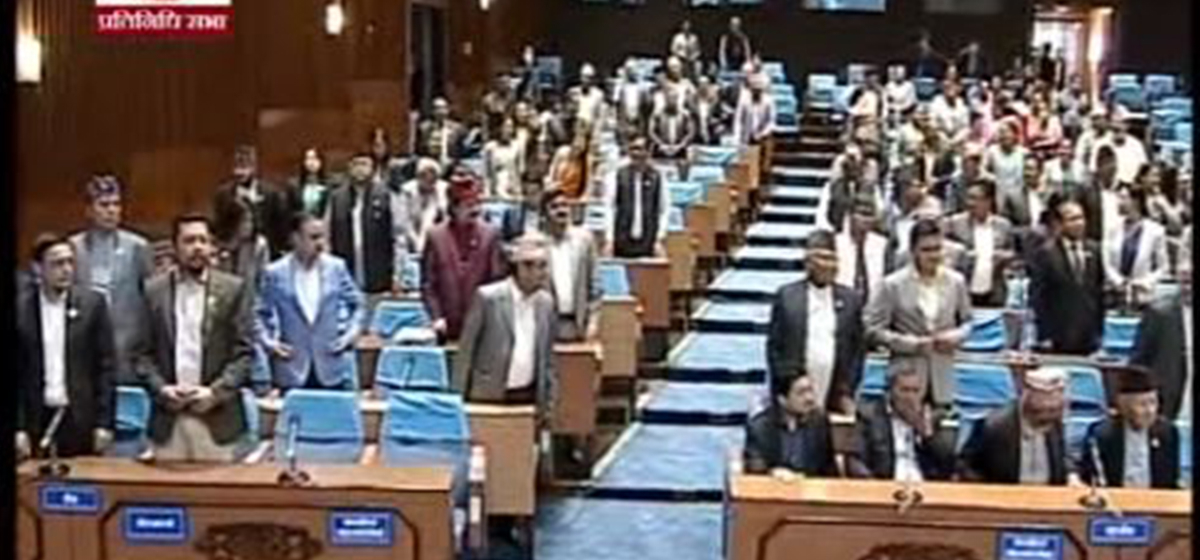
KATHMANDU, Oct 3: The highest body of the people, the Federal Parliament (House of Representatives and National Assembly) can create laws based on the needs and justifications of the country.
Even if the government takes a bill to the federal parliament, the parliamentarians can amend and modify it. However, in recent times, the right of the parliamentarian has been curtailed, and when the government proceeds with the law-making process by discussing and agreeing outside parliament, questions have started to arise as to who is responsible for making the law.
Constitutional expert Bipin Adhikari says that the government has the right to play a role in the law-making process inside and outside parliament. However, if the passed law is against the constitution, only the court has the power to annul it, he said. However, officials of the Parliament Secretariat say that the government has played an unnecessary interfering role in parliament. They say that the government has interfered unnecessarily at various times while passing a bill after debate and discussion in parliament.
The government can withdraw a bill registered in parliament or proceed with further approval. As parliament functions on the basis of the majority, the government can pass any bill it wants. However, they say that the government does not seem to be doing such an act in accordance with the rules and that the bill is being pushed forward and withdrawn based on pure political revenge.
The last time the government registered the School Education Bill in parliament, the teachers sought to protest. Although the bill falls under the jurisdiction of parliament, the government entered into a six-point agreement with the agitating teachers and subsequently withdrew the bill. The bill is now at a standstill, with confusion surrounding the subject of parliamentary discussion.
There is still a nine-step process for parliament to discuss and pass the School Education Bill. This bill was only submitted to the House on Sunday. The House will hold theoretical discussions on the bill from Tuesday. The matter of what parliament will discuss next in the bill is uncertain.
"When the government had already reached a consensus on everything, why did parliament need to call the stakeholders, and why increase the expenses of parliament?" asked an official from the Parliament Secretariat. However, all parliamentarians have the right to make amendments in parliament, and the bill can be amended through the amendment process, and the government can intervene inconspicuously by forcing the ruling party parliamentarians to amend, but they argue that the government's direct agreement with parliament, bypassing due process and treat it as nothing, is inappropriate.
Earlier, the Guthi Bill introduced by the government on June 18, 2019, was due in the National Assembly but was withdrawn by the then Prime Minister KP Oli's government due to the agitation of the residents of Kathmandu.
Government-led bills have experienced a similar fate, with some bills being withdrawn during movements and others merely registered and left inactive.
The government led by Prime Minister Sher Bahadur Deuba withdrew the Federal Civil Service Bill on October 8, 2021, and on August 15, 2022, it withdrew the Citizenship Bill and replaced it by introducing another bill. The replacement bill was discussed many times in the State Affairs Committee of the House of Representatives and was approved by a majority and submitted to the parliament meeting in July 2020.
An MP said that the government's unwarranted intervention has been evident, hindering the progress of bill reports approved after extensive meetings. He expressed that the government is overshadowing the role of parliamentarians due to the arrogance of the majority in the previous and current parliaments as well.
The parliamentarians themselves admit that it is the responsibility of parliamentarians to enact quality laws and to be frustrated when the government intervenes to enforce them.
It is essential for MPs to adhere to constitutional provisions while crafting laws. An agreement between the government and protesting teachers includes a review of action and response, raising concerns regarding parliament's role in upholding constitutional provisions.
As per the constitution's provisions, a bill should be crafted and handed over to the local level. Parliament is bound by the constitution and cannot disregard it while reviewing departmental actions and penalties concerning teachers and staff. However, the government has expressed its intention to conduct this review.
The teachers believe that adhering to constitutional provisions may harm them. To address this issue properly, it must be discussed with both the parliamentary committee and teachers. Failing to do so raises questions about the government's commitment to the agreement made.
Parliament's duty is to create laws through consultations with stakeholders. If parliament continues doing what the government says, there will be a situation where the court can intervene.
Ten months after the election, only one bill has made significant progress. The government's principal responsibility is to introduce bills, and this duty should be treated with the utmost importance in the legislative process.
You May Like This
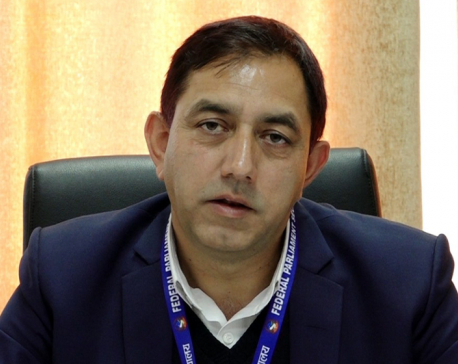
All bills in HoR inactive, bills in National Assembly remain unchanged
KATHMANDU, Nov 30: One term of the federal parliament has been completed. With the election of the members of the... Read More...
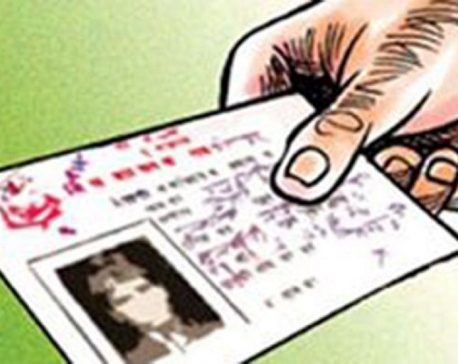
Citizenship Bill withdrawn from parliament due to lack of unanimous position among parties: Govt
KATHMANDU, July 6: The government has said that it decided to withdraw the Citizenship Bill as it aimed to forge... Read More...
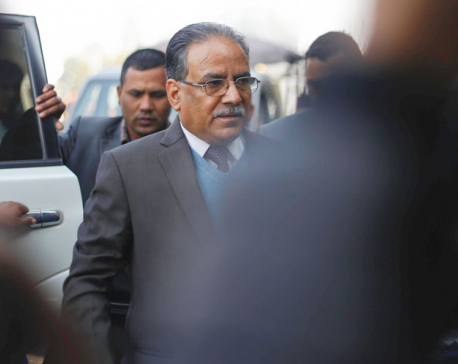
Government to take together constitution amendment and elections bills
KATHMANDU, Dec 27: The government has informed the federal alliance which also includes the United Democratic Madhesi Front that it... Read More...




Just In
- NEA Provincial Office initiates contract termination process with six companies
- Nepal's ready-made garment exports soar to over 9 billion rupees
- Vote count update: UML candidate continues to maintain lead in Bajhang
- Govt to provide up to Rs 500,000 for building houses affected by natural calamities
- China announces implementation of free visa for Nepali citizens
- NEPSE gains 14.33 points, while daily turnover inclines to Rs 2.68 billion
- Tourists suffer after flight disruption due to adverse weather in Solukhumbu district
- Vote count update: NC maintains lead in Ilam-2












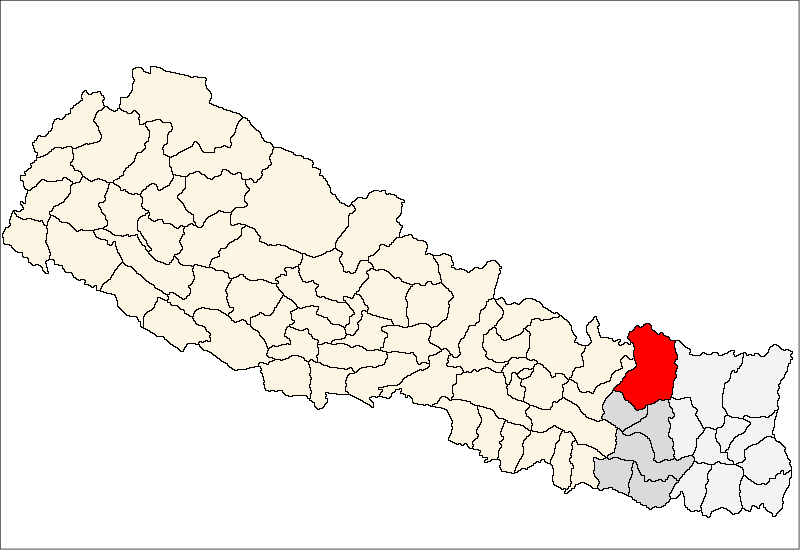
Leave A Comment